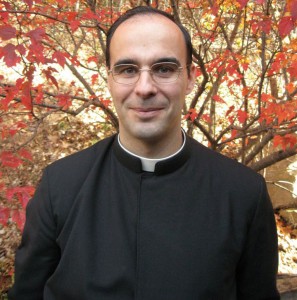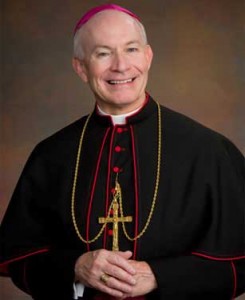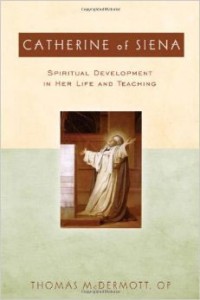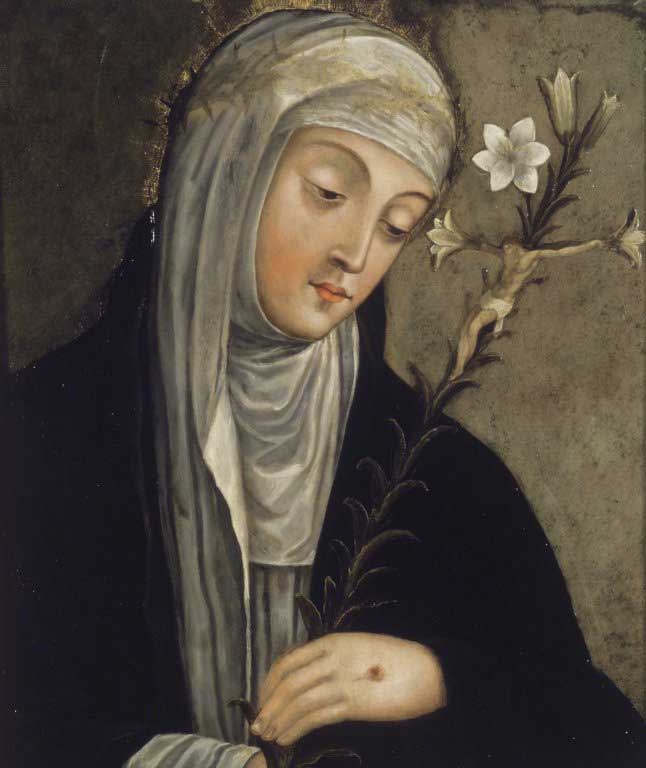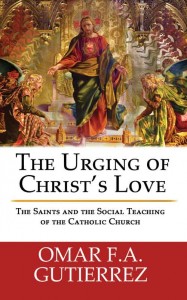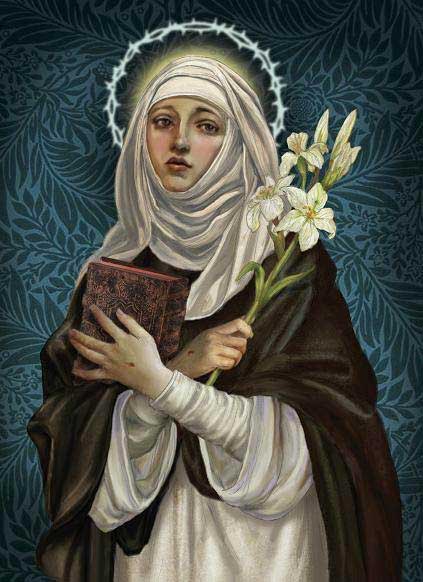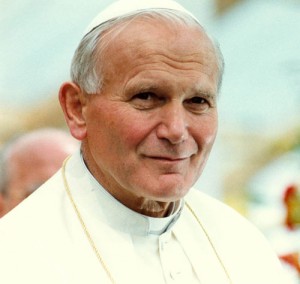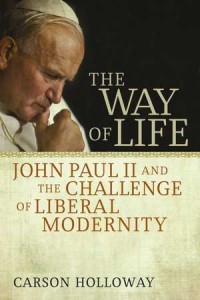FG#15 – The Way of Trust and Love Ep4 – Fountains of Grace: reflections on contemporary spiritual classics with Donna Garrett Join host Donna Garrett, with Fr. James Perez, LC, as they discuss the spiritual classic “The Way of Trust and Love: A Retreat Guided By St. Therese of Lisieux” by Fr. Jacques Philippe. [powerpress] Discussed in this episode, among other topics, from “The Way of Trust and Love”
Join host Donna Garrett, with Fr. James Perez, LC, as they discuss the spiritual classic “The Way of Trust and Love: A Retreat Guided By St. Therese of Lisieux” by Fr. Jacques Philippe. [powerpress] Discussed in this episode, among other topics, from “The Way of Trust and Love”
Whatever our personal limitations and situations, we can all love right where we are: in the kitchen, the bathroom, the office— it makes no difference. What the Church needs most is genuine love. We attach too much importance to externals, actions, and visible effectiveness, whereas all that counts, all that really bears fruit in the Church, is the truth and purity and sincerity of love; that is what we should ask God for most of all and put into practice.
Philippe, Jacques (2012-06-07). The Way of Trust and Love – A Retreat Guided by St. Therese of Lisieux (Kindle Locations 731-734). Scepter Publishers. Kindle Edition.
For other episodes in the this series click here “Fountains of Grace w/Donna Garrett“
 You can find “The Way of Trust and Love” here
You can find “The Way of Trust and Love” here
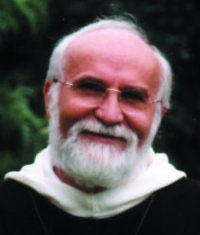
Fr. Jacques Philippe
Tags: catholic, catholic podcast, catholic prayer, cathollc spirituality, Donna Garrett, Jacques Philippe, James Perez
This entry was posted on Thursday, April 24th, 2014 at 6:01 am
You can follow any responses to this entry through the RSS 2.0 feed.
To Nanna, daughter of Benincasa, a little maid, her niece, in Florence:
 Now, then, we must have light–otherwise it would not be enough. This light has to be the light of most holy faith. But the saints say that faith without works is dead. Therefore we need to exert ourselves virtuously all the time, and leave our childishness and vanities, and not behave any longer like worldly girls, but like faithful brides consecrated to Christ crucified; in this way we shall have a lamp, and oil, and light.
Heavenly Father, your glory is in your saints. We praise your glory in the life of the admirable St. Catherine of Siena, virgin and doctor of the Church. Her whole life was a noble sacrifice inspired by an ardent love of Jesus, your unblemished Lamb. In troubled times she strenuously upheld the rights of His beloved spouse, The Church. Father, honor her merits and hear her prayers for each of us. Help us to pass unscathed through the corruption of this world, and to remain unshakably faithful to the church in word, deed, and example. Help us always to see in the Vicar of Christ an anchor in the storms of life, and a beacon of light to the harbor of your Love, in this dark night of your times and men’s souls. Grant also to each of us our special petition . . . (pause to pray for your own intentions). We ask this through Jesus, your Son, in the bond of the Holy Spirit. Amen.
St. Catherine of Siena, Pray for us.
For the complete novena visit the St. Catherine of Siena Novena Page
Tags: catholic, catholic podcast, catholic prayer, cathollc spirituality
This entry was posted on Thursday, April 24th, 2014 at 5:15 am
You can follow any responses to this entry through the RSS 2.0 feed.
USCCA40Â Â Chapter 31Â -Â Do Not Steal – Act Justly: The 7th Commandment
[powerpress]
Archbishop Lucas offers insights on the US Catholic Catechism for Adults Chapter 31:
The Seventh Commandment forbids stealing or theft, which involves taking someone’s money or property “against the reasonable will of the owner.†Theft includes not only robbery but also actions such as embezzlement, computer theft, counterfeit money, fraud, identity theft, copyright violations (including pirating things such as music or computer software), and mail scams.
To keep this Commandment, we need to acquire the virtues of moderation in our possessions, justice in our treatment of others, respect for their human dignity, and solidarity with all peoples. Moderation curbs our attachment to worldly goods and restrains our appetite for consumerism. Justice helps us respect our neighbor’s rights and be interested in their human well-being. Solidarity opens our hearts to identifying with the whole human family, reminding us of our common humanity.
We should not steal from each other, pay unfair salaries, cheat in business, or exploit people’s weaknesses to make money. Promises should be kept and contracts honored to the extent that the issues are morally just (cf. CCC, no. 2410). We need to safeguard property rights, pay our debts, and fulfill obligations freely incurred. The government has the right and duty to safeguard legitimate ownership of money and property and to protect people from robbery and injury.
United States Conference of Catholic Bishops (USCCB) (2012-04-02). United States Catholic Catechism for Adults (Kindle Locations 6057-6066). United States Conference of Catholic Bishops (USCCB). Kindle Edition.
The Most Reverend George J. Lucas leads the Archdiocese of Omaha.Â
For other episodes in the visit our Archbishop George Lucas page
This programs is based on:
More information can be found here.
We wish to thank the USCCB for the permissions granted for use of  relevant material used in this series.
Tags: catholic, catholic podcast, catholic prayer, cathollc spirituality, George Lucas, United States Catholic Catechism, United States Conference of Catholic Bishops
This entry was posted on Wednesday, April 23rd, 2014 at 7:00 am
You can follow any responses to this entry through the RSS 2.0 feed.
Don’t have to time pray? Think twice….Join Teresa Monaghen, of Pro Sanctity, as she of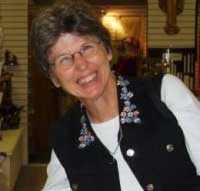 fers a “Personal Plan for Holiness”. Listen along with these short, but beautiful meditations which encourage us to continue on our journey as “saints in the making”!
fers a “Personal Plan for Holiness”. Listen along with these short, but beautiful meditations which encourage us to continue on our journey as “saints in the making”!
[powerpress]
Learn more about Pro Sanctity at www.prosanctity.org
Tags: catholic, catholic podcast, catholic prayer, cathollc spirituality, personal plan, pro sanctity, teresa monaghen
This entry was posted on Wednesday, April 23rd, 2014 at 5:58 am
You can follow any responses to this entry through the RSS 2.0 feed.
[powerpress]
Day 3
The Eternal Father speaks to Catherine: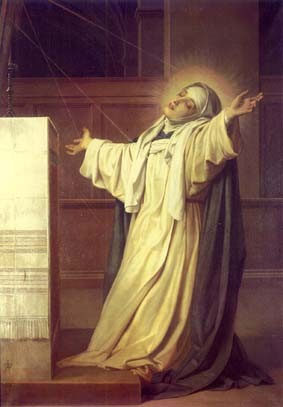
Dearest daughter, contemplate the marvelous state of the soul who receives this bread of life, this food of angels, as she ought. When she receives this sacrament she lives in me and I in her. Just as the fish is in the sea and the sea in the fish, so am I in the soul and the soul in me, the sea of peace. Grace lives in such a soul because, having received this bread of life in grace, she lives in grace.
Heavenly Father, your glory is in your saints. We praise your glory in the life of the admirable St. Catherine of Siena, virgin and doctor of the Church. Her whole life was a noble sacrifice inspired by an ardent love of Jesus, your unblemished Lamb. In troubled times she strenuously upheld the rights of His beloved spouse, The Church. Father, honor her merits and hear her prayers for each of us. Help us to pass unscathed through the corruption of this world, and to remain unshakably faithful to the church in word, deed, and example. Help us always to see in the Vicar of Christ an anchor in the storms of life, and a beacon of light to the harbor of your Love, in this dark night of your times and men’s souls. Grant also to each of us our special petition . . . (pause to pray for your own intentions). We ask this through Jesus, your Son, in the bond of the Holy Spirit. Amen.
St. Catherine of Siena, Pray for us.
For the complete novena visit the St. Catherine of Siena Novena Page
Tags: Catherine, catholic, catholic podcast, catholic prayer, cathollc spirituality, soul, st catherine of siena, St. Catherine of Siena Novena
This entry was posted on Wednesday, April 23rd, 2014 at 5:12 am
You can follow any responses to this entry through the RSS 2.0 feed.
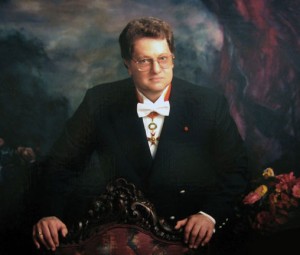 A very special “Inside the Pages” with Sir Gilbert Levine, who shares from his heart, this compelling tale of faith, friendship, and the healing power of music to bring people together. “The Pope’s Maestro” is an extraordinary and inspirational story of the unlikely friendship of  Sir Gilbert Levine and Pope John Paul II, who collaborated on symbolic acts of reconciliation: a series of internationally broadcast concerts designed to bring together people from all religious backgrounds under the auspices of the Vatican. Sir Gilbert  invites us all in to share in the special relationship bonded in music, prayer, and…love.
A very special “Inside the Pages” with Sir Gilbert Levine, who shares from his heart, this compelling tale of faith, friendship, and the healing power of music to bring people together. “The Pope’s Maestro” is an extraordinary and inspirational story of the unlikely friendship of  Sir Gilbert Levine and Pope John Paul II, who collaborated on symbolic acts of reconciliation: a series of internationally broadcast concerts designed to bring together people from all religious backgrounds under the auspices of the Vatican. Sir Gilbert  invites us all in to share in the special relationship bonded in music, prayer, and…love. 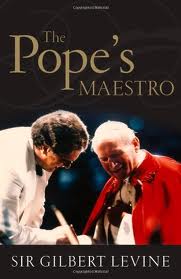 [powerpress] You can find more about this wonderful book here
[powerpress] You can find more about this wonderful book here
Tags: catholic, catholic podcast, catholic prayer, cathollc spirituality
This entry was posted on Wednesday, April 23rd, 2014 at 12:32 am
You can follow any responses to this entry through the RSS 2.0 feed.
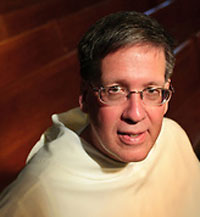 Episode 7Â St. Catherine of Siena: Her Life and Teachings with Fr. Thomas McDermott
Episode 7Â St. Catherine of Siena: Her Life and Teachings with Fr. Thomas McDermott
[powerpress]
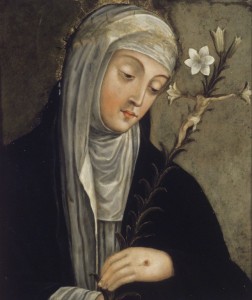 In this episode, Fr. McDermott aids in our understanding of St. Catherine’s teachings on the “stages” of our spiritual life.
In this episode, Fr. McDermott aids in our understanding of St. Catherine’s teachings on the “stages” of our spiritual life.
What is the proper understanding of grace and sharing in the Divine Life.  Good feelings, consolations, joy are experiences during the second step on the “Christ-Bridge”.  The concern of “falling  in love more with the gifts rather than with the Giver” is discussed.  The danger of spiritual gluttony and pride, as well as the need to care for one’s neighbor are essential elements in St. Catherine’s teachings.  Fr. McDermott also reflects on her teachings about the Divine Fire and gift of Tears.
Fr. Thomas McDermott, OP is Regent of Studies for the Dominican Province of St. Albert the Great and is the author of “Catherine of Siena: Spiritual Development in Her Life and Teaching” (Paulist, 2008) and “Filled with all the Fullness of God: An Introduction to Catholic Spirituality”. He obtained a doctorate in spiritual theology from the Angelicum and taught for several years at Kenrick-Glennon Seminary in St. Louis. He crrently serves as pastor at St. Vincent Ferrer, in Chicago, IL.
Tags: catholic, catholic podcast, catholic prayer, cathollc spirituality, McDermott, st catherine of siena, Thomas McDermott
This entry was posted on Tuesday, April 22nd, 2014 at 11:10 am
You can follow any responses to this entry through the RSS 2.0 feed.
The Eternal Father speaks to Catherine:
My Truth invited you to call out thus when He said: “Call and you will be answered; knock and it shall be opened to you; ask and it shall be given to you.” So I am telling you what I want you to do. Never relax your desire to ask for My help. Never lower you voice in crying out to Me to be merciful to the world. Never stop knocking at the door of my Truth by following in His footsteps. Find your delight with Him on the cross by feeding on souls for the glory and praise of My Name.
Heavenly Father, your glory is in your saints. We praise your glory in the life of the admirable St. Catherine of Siena, virgin and doctor of the Church. Her whole life was a noble sacrifice inspired by an ardent love of Jesus, your unblemished Lamb. In troubled times she strenuously upheld the rights of His beloved spouse, The Church. Father, honor her merits and hear her prayers for each of us. Help us to pass unscathed through the corruption of this world, and to remain unshakably faithful to the church in word, deed, and example. Help us always to see in the Vicar of Christ an anchor in the storms of life, and a beacon of light to the harbor of your Love, in this dark night of your times and men’s souls. Grant also to each of us our special petition . . . (pause to pray for your own intentions). We ask this through Jesus, your Son, in the bond of the Holy Spirit. Amen.
St. Catherine of Siena, Pray for us.
(First paragraph excerpt taken from  Dialogue of St Catherine,(Chapter 107), Translated by Suzanne Noffke, Classics of Western Spirituality Series.)
For the complete novena visit the St. Catherine of Siena Novena Page
Tags: catholic, catholic podcast, catholic prayer, cathollc spirituality
This entry was posted on Tuesday, April 22nd, 2014 at 11:00 am
You can follow any responses to this entry through the RSS 2.0 feed.
Episode 10Â -The Way of Mystery: The Eucharist and Moral Living 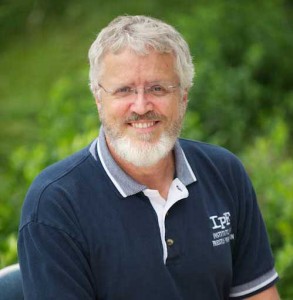
The Liturgy of the Eucharist part 2 : The True Meaning of “Full and Active Participation”…The Purpose of the Eucharistic Prayer.
[powerpress]
For more episodes in “The Way of Mystery” Series click here
Deacon James Keating, PhD, the director of Theological Formation for the Institute for Priestly Formation, located at Creighton University, in Omaha, is making available to â€Discerning Hearts†and all who listen, his series of programs entitled “The Way of Mysteryâ€.
 The Vatican II documents remind us that the spiritual journey is not made in a vacuum, that God has chosen to save us, not individually, but as The People of God. The Eucharist must help Christians to make their choices by discerning out of Christ’s paschal mystery. For this process to take place, however, Christians must first understand how the Eucharist puts them in touch with Christ’s passion, death, and resurrection, and what concrete implications being in touch with this mystery has for their daily lives.
The Vatican II documents remind us that the spiritual journey is not made in a vacuum, that God has chosen to save us, not individually, but as The People of God. The Eucharist must help Christians to make their choices by discerning out of Christ’s paschal mystery. For this process to take place, however, Christians must first understand how the Eucharist puts them in touch with Christ’s passion, death, and resurrection, and what concrete implications being in touch with this mystery has for their daily lives.
For more information on the “Institute of Priestly Formation†and for other material available by Deacon Keating, just click here
Don’t forget to pickup a copy of “Communion with Christ†, it is one of the best audio sets on prayer…ever!
Check out Deacon Keating’s “Discerning Heart†page
Tags: catholic, catholic podcast, catholic prayer, cathollc spirituality
This entry was posted on Tuesday, April 22nd, 2014 at 7:32 am
You can follow any responses to this entry through the RSS 2.0 feed.
Dr. Matthew Bunson discusses the life, times and teachings of St. John Damascene pt 2  [powerpress]
[powerpress]
-
Born: 676 AD, Damascus, Syria
-
Died: December 4, 749 AD, Mar Saba, Jordan
John Damascene extends these fundamental ideas to the veneration of the relics of Saints, on the basis of the conviction that the Christian Saints, having become partakers of the Resurrection of Christ, cannot be considered simply “dead”. Numbering, for example, those whose relics or images are worthy of veneration, John states in his third discourse in defence of images: “First of all (let us venerate) those among whom God reposed, he alone Holy, who reposes among the Saints (cf. Is 57: 15), such as the Mother of God and all the Saints. These are those who, as far as possible, have made themselves similar to God by their own will; and by God’s presence in them, and his help, they are really called gods (cf. Ps 82[81]: 6), not by their nature, but by contingency, just as the red-hot iron is called fire, not by its nature, but by contingency and its participation in the fire. He says in fact : you shall be holy, because I am Holy (cf. Lv 19: 2)” (III, 33, col. 1352 a). After a series of references of this kind, John Damascene was able serenely to deduce: “God, who is good, and greater than any goodness, was not content with the contemplation of himself, but desired that there should be beings benefited by him, who might share in his goodness: therefore he created from nothing all things, visible and invisible, including man, a reality visible and invisible. And he created him envisaging him and creating him as a being capable of thought (ennoema ergon), enriched with the word (logo[i] sympleroumenon), and orientated towards the spirit (pneumati teleioumenon)” (II, 2, pg 94, col. 865a). And to clarify this thought further, he adds: “We must allow ourselves to be filled with wonder (thaumazein) at all the works of Providence (tes pronoias erga), to accept and praise them all, overcoming any temptation to identify in them aspects which to many may seem unjust or iniquitous, (adika), and admitting instead that the project of God (pronoia) goes beyond man’s capacity to know or to understand (agnoston kai akatalepton), while on the contrary only he may know our thoughts, our actions, and even our future” (ii, 29, pg 94, col. 964c). Plato had in fact already said that all philosophy begins with wonder. Our faith, too, begins with wonder at the very fact of the Creation, and at the beauty of God who makes himself visible.The optimism of the contemplation of nature (physike theoria), of seeing in the visible creation the good, thebeautiful, the true, this Christian optimism, is not ingenuous: it takes account of the wound inflicted on human nature by the freedom of choice desired by God and misused by man, with all the consequences of widespread discord which have derived from it. From this derives the need, clearly perceived by John Damascene, that nature, in which the goodness and beauty of God are reflected, wounded by our fault, “should be strengthened and renewed” by the descent of the Son of God in the flesh, after God had tried in many ways and on many occasions, to show that he had created man so that he might exist not only in “being”, but also in “well-being” (cf. The Orthodox Faith, II, 1, pg 94, col. 981). With passionate eagerness John explains: “It was necessary for nature to be strengthened and renewed, and for the path of virtue to be indicated and effectively taught (didachthenai aretes hodòn), the path that leads away from corruption and towards eternal life…. So there appeared on the horizon of history the great sea of love that God bears towards man (philanthropias pelagos)”…. It is a fine expression. We see on one side the beauty of Creation, and on the other the destruction wrought by the fault of man. But we see in the Son of God, who descends to renew nature, the sea of love that God has for man. John Damascene continues: “he himself, the Creator and the Lord, fought for his Creation, transmitting to it his teaching by example…. And so the Son of God, while still remaining in the form of God, lowered the skies and descended… to his servants… achieving the newest thing of all, the only thing really new under the sun, through which he manifested the infinite power of God” (III, 1, pg 94, col. 981c-984b).
We may imagine the comfort and joy which these words, so rich in fascinating images, poured into the hearts of the faithful. We listen to them today, sharing the same feelings with the Christians of those far-off days: God desires to repose in us, he wishes to renew nature through our conversion, he wants to allow us to share in his divinity. May the Lord help us to make these words the substance of our lives.
For more visit Vatican.va
Dr. Matthew Bunson, Senior Fellow of the St. Paul Center for Biblical Theology, is one of the United States’ leading authorities on the papacy and the Church. His books include: The Encyclopedia of Catholic History; The Encyclopedia of Saints; Papal Wisdom; All Shall Be Well; Encyclopedia of the Roman Empire; and The Angelic Doctor: The Life and World of St. Thomas Aquinas; The Pope Encyclopedia; We Have a Pope! Benedict XVI, the first Catholic biography of the Holy Father in the English language; the Encyclopedia of U.S. Catholic History; Pope Francis. His also the editor of OSV’s “The Catholic Answer” magazine.
Tags: catholic, catholic podcast, catholic prayer, cathollc spirituality
This entry was posted on Tuesday, April 22nd, 2014 at 7:21 am
You can follow any responses to this entry through the RSS 2.0 feed.
 Episode 15- Seeking Truth with Sharon Doran -Announcement of the Kingdom Of God (PART 1)
Episode 15- Seeking Truth with Sharon Doran -Announcement of the Kingdom Of God (PART 1)
[powerpress]
Episode 15 –
Beatitudes (part 1)
“Blessed are…..â€
The Beatitudes. So familiar, yet do we really understand them?
In this lecture, Sharon blazes through the history of Israel, setting the stage for a deeper understanding of the meaning of the Beatitudes.
The occupied, oppressed nation of Israel was yearning for a savior, a savior that would rid them of centuries of foreign occupation.
Then Jesus arrives, working amazing miracles.
Could He be the One??
Expectations are high, but expectations are turned inside-out as Jesus proclaims the paradoxical truths of the Beatitudes.
Sharon Doran serves as the teaching director of “Seeking Truth.†An experienced Bible Study teacher, Sharon has a passion for scripture that will motivate and challenge you to immerse yourself in God’s Word and apply His message to your every day life.
 “Seeking Truth†is an in depth Catholic Bible Study, commissioned by the Archdiocese of Omaha in response to John Paul II’s call to the New Evangelization as well as Pope Benedict XVI’s exhortation for all Catholics to study scripture. To learn more go to:www.seekingtruth.net
“Seeking Truth†is an in depth Catholic Bible Study, commissioned by the Archdiocese of Omaha in response to John Paul II’s call to the New Evangelization as well as Pope Benedict XVI’s exhortation for all Catholics to study scripture. To learn more go to:www.seekingtruth.net
Tags: beatitudes, catholic, catholic podcast, catholic prayer, cathollc spirituality, Sharon Doran, The Beatitudes
This entry was posted on Tuesday, April 22nd, 2014 at 6:08 am
You can follow any responses to this entry through the RSS 2.0 feed.
Episode 15- Regnum Novum: Bringing forth the New Evangelization through Catholic Social Teaching with Omar Gutierrez – Blessed John XXIII - Mater et Magistra
Gutierrez – Blessed John XXIII - Mater et Magistra
[powerpress]
Blessed Pope John XXIII, born Angelo Giuseppe Roncalli (25 November 1881 – 3 June 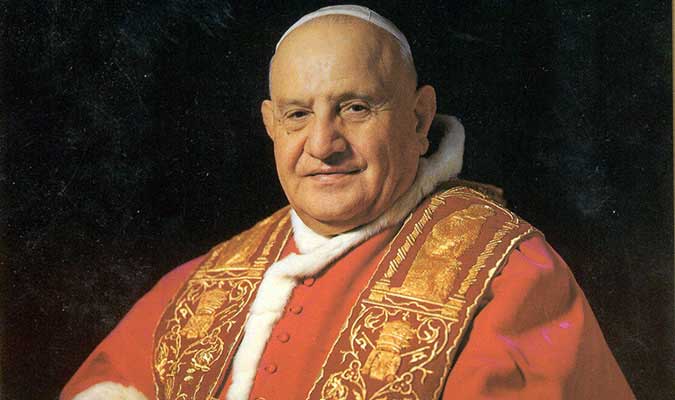 1963), headed the Catholic Church and ruled Vatican City from 1958 until his death.
1963), headed the Catholic Church and ruled Vatican City from 1958 until his death.
Pope John was elected on 28 October 1958. He called the Second Vatican Council (1962–1965) but did not live to see it to completion. He died in 1963, only four-and-a-half years after his election, and two months after the completion of his final encyclical, Pacem in Terris. He was beatified, along with Pope Pius IX, on 3 September 2000.
Also visit Omar’s “Discerning Hearts” page Catholic Social Teaching 101
You can find Omar Gutierrez’s book here
In The Urging of Christ’s Love Omar Gutiérrez tells the stories of eleven people who lived their lives in pursuit of Christ Jesus. Each Saint, Blessed or Servant of God is considered in the context of Catholic Social Teaching. Then at the end of each chapter a prayer is offered and quotes from the Compendium of the Social Doctrine of the Church are provided in order to link the lessons we can learn from the saint’s life to Church teaching. By discovering some new saint friends, and rediscovering some old ones, The Urging of Christ’s Love presents Catholic Social Teaching in an accessible and important way.
Tags: catholic social teaching, Omar Gutierrez
This entry was posted on Monday, April 21st, 2014 at 2:18 pm
You can follow any responses to this entry through the RSS 2.0 feed.
From a letter to Frate Giusto di Giovanni da Volterra:
“He gave His blood out of love and it is with this love that He asks us for a drink. I mean that Jesus, who loves, is asking to be loved and served. It is only right that the one who loves ought to be loved. This is how we give our Creator a drink: when we give Him love for love. But we cannot give it to Him through any service we can render Him; no we must give it to Him in the person of our neighbor.”
Heavenly Father, your glory is in your saints. We praise your glory in the life of the admirable St. Catherine of Siena, virgin and doctor of the Church. Her whole life was a noble sacrifice inspired by an ardent love of Jesus, your unblemished Lamb. In troubled times she strenuously upheld the rights of His beloved spouse, The Church. Father, honor her merits and hear her prayers for each of us. Help us to pass unscathed through the corruption of this world, and to remain unshakably faithful to the church in word, deed, and example. Help us always to see in the Vicar of Christ an anchor in the storms of life, and a beacon of light to the harbor of your Love, in this dark night of your times and men’s souls. Grant also to each of us our special petition . . . (pause to pray for your own intentions). We ask this through Jesus, your Son, in the bond of the Holy Spirit. Amen.
St. Catherine of Siena, Pray for us.
(First paragraph excerpt taken from Letter 8 in Letters of St Catherine of Siena, Volume II translated by Suzanne Noffke OP,- published by Arizona Center for Medieval and Renaissance Studies,2001)
For the complete novena visit the St. Catherine of Siena Novena Page
Tags: catholic, catholic podcast, catholic prayer
This entry was posted on Monday, April 21st, 2014 at 2:01 pm
You can follow any responses to this entry through the RSS 2.0 feed.
Episode 25 – The Holy Rule of St. Benedict: A Spiritual Path for Today’s World with Fr. Mauritius Wilde O.S.B., PhD.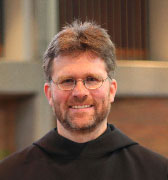
[powerpress]
From the Holy Rule of St. Benedict:
CHAPTER II
The Abbot who is worthy to be over a monastery, ought always to be mindful of what he is called, and make his works square with his name of Superior. For he is believed to hold the place of Christ in the monastery, when he is called by his name, according to the saying of the Apostle: “You have received the spirit of adoption of sons, whereby we cry Abba (Father)” (Rom 8:15). Therefore, the Abbot should never teach, prescribe, or command (which God forbid) anything contrary to the laws of the Lord; but his commands and teaching should be instilled like a leaven of divine justice into the minds of his disciples.
Let the Abbot always bear in mind that he must give an account in the dread judgment of God of both his own teaching and of the obedience of his disciples. And let the Abbot know that whatever lack of profit the master of the house shall find in the sheep, will be laid to the blame of the shepherd. On the other hand he will be blameless, if he gave all a shepherd’s care to his restless and unruly flock, and took all pains to correct their corrupt manners; so that their shepherd, acquitted at the Lord’s judgment seat, may say to the Lord with the Prophet: “I have not hid Thy justice within my heart. I have declared Thy truth and Thy salvation” (Ps 39[40]:11). “But they contemning have despised me” (Is 1:2; Ezek 20:27). Then at length eternal death will be the crushing doom of the rebellious sheep under his charge.
When, therefore, anyone taketh the name of Abbot he should govern his disciples by a twofold teaching; namely, he should show them all that is good and holy by his deeds more than by his words; explain the commandments of God to intelligent disciples by words, but show the divine precepts to the dull and simple by his works. And let him show by his actions, that whatever he teacheth his disciples as being contrary to the law of God must not be done, “lest perhaps when he hath preached to others, he himself should become a castaway” (1 Cor 9:27), and he himself committing sin, God one day say to him: “Why dost thou declare My justices, and take My covenant in thy mouth? But thou hast hated discipline, and hast cast My words behind thee” (Ps 49[50]:16-17). And: “Thou who sawest the mote in thy brother’s eye, hast not seen the beam in thine own” (Mt 7:3).
Let him make no distinction of persons in the monastery. Let him not love one more than another, unless it be one whom he findeth more exemplary in good works and obedience. Let not a free-born be preferred to a freedman, unless there be some other reasonable cause. But if from a just reason the Abbot deemeth it proper to make such a distinction, he may do so in regard to the rank of anyone whomsoever; otherwise let everyone keep his own place; for whether bond or free, we are all one in Christ (cf Gal 3:28; Eph 6:8), and we all bear an equal burden of servitude under one Lord, “for there is no respect of persons with God” (Rom 2:11). We are distinguished with Him in this respect alone, if we are found to excel others in good works and in humility. Therefore, let him have equal charity for all, and impose a uniform discipline for all according to merit.
For in his teaching the Abbot should always observe that principle of the Apostle in which he saith: “Reprove, entreat, rebuke” (2 Tm 4:2), that is, mingling gentleness with severity, as the occasion may call for, let him show the severity of the master and the loving affection of a father. He must sternly rebuke the undisciplined and restless; but he must exhort the obedient, meek, and patient to advance in virtue. But we charge him to rebuke and punish the negligent and haughty. Let him not shut his eyes to the sins of evil-doers; but on their first appearance let him do his utmost to cut them out from the root at once, mindful of the fate of Heli, the priest of Silo (cf 1 Sam 2:11-4:18). The well-disposed and those of good understanding, let him correct at the first and second admonition only with words; but let him chastise the wicked and the hard of heart, and the proud and disobedient at the very first offense with stripes and other bodily punishments, knowing that it is written: “The fool is not corrected with words” (Prov 29:19). And again: “Strike thy son with the rod, and thou shalt deliver his soul from death” (Prov 23:14).
The Abbot ought always to remember what he is and what he is called, and to know that to whom much hath been entrusted, from him much will be required; and let him understand what a difficult and arduous task he assumeth in governing souls and accommodating himself to a variety of characters. Let him so adjust and adapt himself to everyone — to one gentleness of speech, to another by reproofs, and to still another by entreaties, to each one according to his bent and understanding — that he not only suffer no loss in his flock, but may rejoice in the increase of a worthy fold.
Above all things, that the Abbot may not neglect or undervalue the welfare of the souls entrusted to him, let him not have too great a concern about fleeting, earthly, perishable things; but let him always consider that he hath undertaken the government of souls, of which he must give an account. And that he may not perhaps complain of the want of earthly means, let him remember what is written: “Seek ye first the kingdom of God and His justice, and all these things shall be added unto you” (Mt 6:33). And again: “There is no want to them that fear Him” (Ps 33[34]:10). And let him know that he who undertaketh the government of souls must prepare himself to give an account for them; and whatever the number of brethren he hath under his charge, let him be sure that on judgment day he will, without doubt, have to give an account to the Lord for all these souls, in addition to that of his own. And thus, whilst he is in constant fear of the Shepherd’s future examination about the sheep entrusted to him, and is watchful of his account for others, he is made solicitous also on his own account; and whilst by his admonitions he had administered correction to others, he is freed from his own failings.
 For more information about the ministry of the the Missionary Benedictines of Christ the King Priory in Schuyler, Nebraska visit here:
For more information about the ministry of the the Missionary Benedictines of Christ the King Priory in Schuyler, Nebraska visit here:
Tags: Holy Rule of St. Benedict, The Abbot
This entry was posted on Monday, April 21st, 2014 at 6:06 am
You can follow any responses to this entry through the RSS 2.0 feed.
WOL4 – Episode 4 –  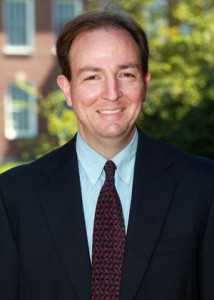 The Scottish Enlightenment…what was it and why was it such an important movement to understand.  The influence of David Hume - Scottish philosopher, historian, economist, and essayist.  The flaw in Hume’s philosophy –  that self-interest is  stronger than sympathy, and if morality, according to Hume’s thinking,  is derived from the passions, then ultimately self-interest is a greater worth and motivator than sympathy.  This conflicts with the Christian understanding of the “Golden Rule” and fuels the Culture of Death…those in need become very vulnerable in the culture.
The Scottish Enlightenment…what was it and why was it such an important movement to understand.  The influence of David Hume - Scottish philosopher, historian, economist, and essayist.  The flaw in Hume’s philosophy –  that self-interest is  stronger than sympathy, and if morality, according to Hume’s thinking,  is derived from the passions, then ultimately self-interest is a greater worth and motivator than sympathy.  This conflicts with the Christian understanding of the “Golden Rule” and fuels the Culture of Death…those in need become very vulnerable in the culture.
[powerpress]
The Way of Life, Carson Holloway examines the fundamental philosophers of modernity-from Hobbes to Toqueville-to suggest that John Paul II’s critique of modernity is intended not to reject, but to improve. Thus, claims Holloway, it is appropriate for liberal modernity to attend to the Pope’s thought, receiving it not as the attack of an enemy but as the criticism of a candid friend.
 Â
For other episodes in the series visit Dr. Holloway’s Discerning Hearts page
This series is based on Dr. Holloway’s book “The Way of Life”
Tags: Carson Holloway, David Hume, Scottish Enlightenment
This entry was posted on Monday, April 21st, 2014 at 6:00 am
You can follow any responses to this entry through the RSS 2.0 feed.

